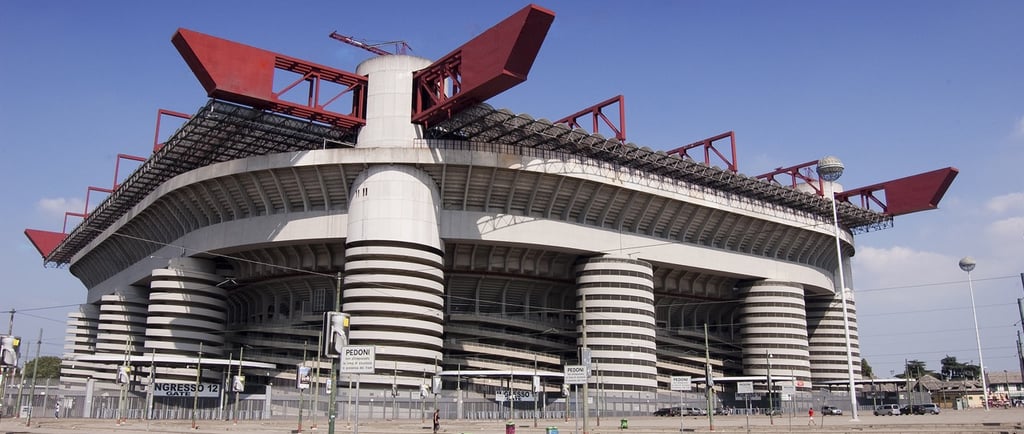SAN SIRO, IL TAR HA BOCCIATO LA RICHIESTA DI SOSPENSIVA DEI COMITATI
NEWS


16 luglio 2025
L’avvocato Felice Raimondo, sul proprio profilo X, ha reso noto che il TAR ha rigettato la richiesta di sospensiva presentata dai comitati, i quali sostenevano che il vincolo sul secondo anello del Meazza fosse già effettivo. Questo il messaggio pubblicato:
"Il TAR respinge la sospensiva: il giudizio della Soprintendenza non è implausibile e può essere sindacato solo in casi molto limitati, essendoci ampia discrezionalità tecnica da parte delle autorità preposte nel decidere come e quando interpretare le legislazioni vincolistiche.
Ecco lo stralcio più significativo della ordinanza cautelare, dove, dopo aver rammentato la medesima giurisprudenza amministrativa che avevo menzionato nel mio ultimo approfondimento (quello che sottolineava l'ampia discrezionalità tecnica degli enti), il TAR afferma quanto segue:
le valutazioni espresse nel parere preliminare della competente Soprintendenza in ordine al «requisito della vetustà (70 anni dall’esecuzione) del secondo anello», non appaiono implausibili laddove individuano nel “Verbale di constatazione di compimento dei lavori (collaudo provvisorio) datato 10 novembre 1955”, che è il primo atto che attesta l’ultimazione delle opere previste dal contratto principale, la data di riferimento per la verifica del decorso dei settanta anni dalla «esecuzione» dei lavori stessi;
Considerato, altresì, che non appare sussistente neppure il prescritto «periculum in mora, dedotto in modo generico e per lo più facendo leva sulla imminente stipulazione del contratto di vendita dello «Stadio Meazza», che, di per sé, non sembra evidenziare un danno irreparabile, alla luce di quanto previsto dall’art. 164 del d.lgs. n. 42/2004, nonché di quanto allegato e documentato in atti da parte resistente in ordine alla circostanza che la demolizione dello «Stadio Meazza» non potrà avvenire prima del 2030.
Per questi motivi, la richiesta risulta respinta.
Cosa accade adesso? Pericolo scampato? Beh, la vertenza proseguirà nel merito ma sarà molto complicato che il TAR cambi idea perché, sulla scorta della giurisprudenza menzionata, i Tribunali amministrativi preferiscono non entrare nelle beghe interpretative relative ai vincoli. Tuttavia, restano sullo sfondo le altre problematiche: l'esposto alla Corte dei Conti sulla valutazione e, soprattutto, gli accordi economici con i club (es. costi demolizione, claudola earn out, ecc) e la volontà politica di andare fino in fondo. La maggioranza, infatti, non sembra così compatta dato che i club non hanno soddisfatto tutte le richieste del Comune.
Il prossimo appuntamento sarà in Consiglio Comunale, dove l'amministrazione dovrà superare l'ultimo scoglio relativo alla maggioranza necessaria per deliberare la vendita. Superato anche quel problema, l'operazione San Siro potrà concludersi col rogito. A quel punto i club potranno annullare tutto soltanto se entro 120 giorni, o nel diverso termine pattuito, i lavori non potranno essere iniziati per motivi a loro non imputabili".
EN VERSION
Lawyer Felice Raimondo, on his X profile, announced that the TAR has rejected the request for suspension submitted by the committees, who claimed that the restriction on the second tier of the Meazza was already in force. This is the post he shared:
"The TAR rejects the suspension: the judgement of the Superintendence is not implausible and can only be challenged in very limited cases, since the competent authorities have broad technical discretion in deciding how and when to interpret the relevant heritage laws.
Here is the most significant excerpt of the precautionary order, where, after recalling the same administrative jurisprudence I mentioned in my last analysis (the one highlighting the broad technical discretion of the bodies), the TAR states the following:
the assessments expressed in the preliminary opinion of the competent Superintendence regarding the ‘requirement of antiquity (70 years from completion) of the second tier’ do not appear implausible when they identify the “Inspection Report for Completion of Works (provisional testing) dated November 10, 1955”, which is the first document certifying the completion of the works provided for in the main contract, as the reference date for verifying the seventy-year period from the ‘execution’ of the works themselves;
Furthermore, it does not appear that the required ‘periculum in mora’ exists, being stated in a generic way and mostly relying on the imminent signing of the ‘Stadio Meazza’ sale contract, which in itself does not seem to show irreparable damage, in light of what is provided for by art. 164 of Legislative Decree no. 42/2004, as well as the facts and documents submitted by the defending party indicating that the demolition of the ‘Stadio Meazza’ cannot take place before 2030.
For these reasons, the request is rejected.
What happens now? Is the danger averted? Well, the dispute will continue on the merits but it will be very difficult for the TAR to change its mind because, based on the mentioned jurisprudence, administrative courts usually prefer not to get involved in interpretative disputes over restrictions. However, other issues remain in the background: the report to the Court of Auditors regarding the valuation and, above all, the financial agreements with the clubs (e.g. demolition costs, earn-out clause, etc.) and the political will to see this through. The majority, in fact, does not appear so united since the clubs have not met all the Municipality’s requests.
The next step will be in the City Council, where the administration will have to overcome the final hurdle concerning the majority required to approve the sale. Once that issue is resolved, the San Siro operation can be finalized with the deed of sale. At that point, the clubs could cancel everything only if, within 120 days, or within another agreed period, the works cannot begin for reasons not attributable to them.”
